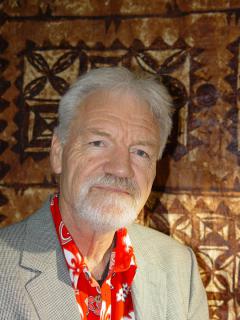
AUCKLAND (Pacific Media Watch / Australian Broadcasting Corporation): The Pacific Media Centre's director, Professor David Robie, has called for more emphasis on critical development journalism in the Asia-Pacific region.
Speaking on ABC's Media Report last night, Professor Robie said there was a tendency globally - and not just in the Pacific - for journalism to be a "bit too cosy with political power".
"Agendas are often set in the media based around press galleries and what's seen as priorities by governments, whereas critical development journalism is really a proclamation - if you like - for ordinary people getting their values and their needs investigated and getting some sort of result from policy changes," Dr Robie told presenter Richard Aedy.
He added it was "farcical" for journalists practising this approach to be accused of being activists as much as journalists.
Discussing the state of media freedom in the Pacific, Dr Robie said West Papua was the most neglected region in the Pacific in terms of media coverage, mainly because there was "virtually no ready access into West Papua by journalists".
To report from West Papua without being sanctioned by the Indonesian government was risky for journalists, and even more so for their contacts and sources, added the author of Don't Spoil My Beautiful Face, published last month.
Because the Australian and New Zealand governments were "far more concerned with their ongoing relationship with Indonesia and they don't want to rock the boat", relatively speaking few journalists had shown an interest in reporting on West Papua.
Challenging restrictions
The military backed government of Fiji posed a "huge problem" to the media although there were signs that some journalists were really starting to challenge many of the restrictions placed on them.
In Tonga, there had been welcome and "momentous changes", he said, adding that Taimi 'o Tonga and Matangi Tonga magazine were doing excellent work.
But in French Polynesia, on the other hand, this month's closure of Les Nouvelles de Tahiti, a major daily that had been publishing for more than 50 years and investigating corruption, was a "big blow to journalism".
In the Phillipines, the so-called electronic martial law criminalising online libel adopted in 2012 and confirmed by the Supreme Court earlier this year as "constitutional" had unfortunately spread across the region, Dr Robie said.
The new law prescribed six-year jail terms for so called "electronic libel" instead of the six months for print media, and similar laws were being enacted in Papua New Guinea and Thailand.
These would "put a chilling factor on the media", he said.
In general, Pacific journalists needed a lot more support and training, as they were often expected to hit the newsrooms straight out of secondary schools, with just "a little bit of short course training," Dr Robie said.
Listen to Media Report's Richard Aedy interview with David Robie
This work is licensed under a Creative Commons Attribution-NonCommercial 3.0 New Zealand Licence.




